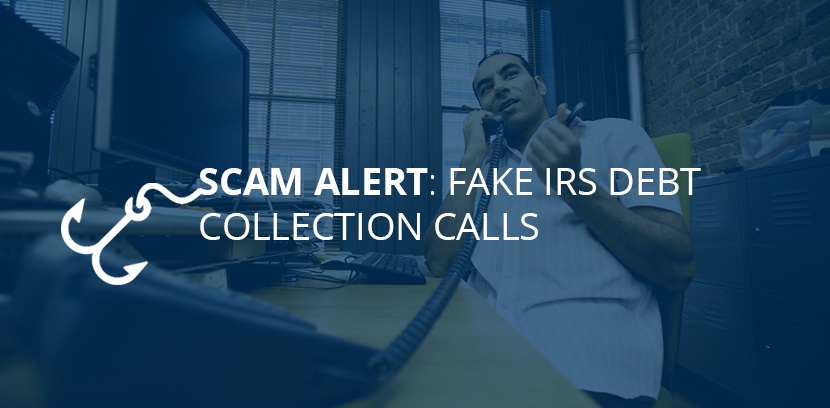Earlier in the summer, the Internal Revenue Service issued a warning for U.S. taxpayers of a surge of fake IRS agents attempting to scam many out of their hard-earned money. The callers would leave urgent requests for callback in order to settle an unnamed tax bill. The victim would then be threatened with legal action upon returning the phone call and the caller would demand gift cards in order to pay off the debt. After being tipped off last week, dozens were arrested in a call-center raid in India for their roles in the IRS fake debt scam.
Threats are only one of the ways to fall victim to a fake debt collector. Know these signs to protect your rights and your money.
Signs of a Scam
First and foremost, consumers must be able to recognize the signs of a phone scam. In many cases, simply because a caller is using a threatening tone, the victim may feel pressured and obviously concerned if they were somehow unaware of a debt. Fake debt collectors will use many deceitful tactics in order to obtain information.
- A debt collector should be able to provide information about the debt including how much and who the original creditor was. In the case of the IRS, they will not call and ask for payment without first mailing a bill.;
- A debt collector isn't allowed to be demanding or use aggressive tactics such as threats in order to receive immediate payment. You should be able to question the amount that you owe and request proof, even with the IRS.
- No legitimate debt collector is going to ask you to pay with a prepaid credit card or gift cards.
- The IRS states that you will also not be asked for credit or debit card numbers over the phone. Any request for payment over the phone is a red flag.
- The IRS will also not threaten the use of law enforcement in order to pressure you to pay immediately.
- A debt collector will also not ask for sensitive information such as bank account numbers and social security numbers.
According to the IRS website, the scams change year-after-year and consumers need to be vigilant. The scams aren't only via phone and have also been seen through text messages, emails and computer malware. Read more about tax scams and how to report them here.
Your Consumer Rights
Even legitimate debt collectors are not allowed to call you on your cell phone unless you've given express written consent for them to do so. They are also not allowed to:
- Contact consumers after 9 pm and before 8 am local time
- Discuss your debt with anyone for any reason other than your contact information
- Lie about how much you owe or attempt to collect on a phony debt
- Harass you or anyone they contact about you
- Use profane or threatening language
The Telephone Consumer Protection Act (TCPA) establishes rules for debt collection using the telephone, including when collectors can call and which devices can be used to make those calls. The Fair Debt Collection Practices Act (FDCPA) also offers protection for consumers against abusive or deceitful debt collection practices. Consumers also have rights under the Fair Credit Reporting Act (FCRA) that allows them to dispute inaccurate data on their credit reports at any time and with no time limits, especially if debt collectors have reported inaccurate information..
What to Do When a Fake Debt Collector Calls
The most important thing you can do when on the phone with a fake debt collector is to stay calm and think clearly. Because you do have rights, you can report the collector to Consumer Financial Protection Bureau (CFPB) or your state attorney general's office. The IRS has specifically asked that taxpayers receiving scam phone calls report the incident to the Treasury Inspector General Tax Administration (TIGTA) or file a complaint with the Federal Trade Commission.
In order to report the collector, you will need to take note of a few things:
- Does the collector have a letter validating your debt, the creditor and how much you owe? If not, it's a scam.
- What is the name of the collector and their contact information? A lawful debt collector will provide you with this information. If not, red flag.
- If the collector gives you the name of the original creditor, you can contact the named creditor and see if they are pursuing your debt through a debt collection agency. Make sure the agency they're using is the same agency that contacted you.
- If you believe you do have an outstanding tax bill and would like to work out payment options, you are advised to call the IRS at 800.829.1040.
- If you are speaking with a real debt collector, they should be able to provide the proper information and work out payment options to reduce your debt.
Don't give out any personal information and hang up the phone if you're feeling especially pressured or threatened. Report the scam as soon as you can.



